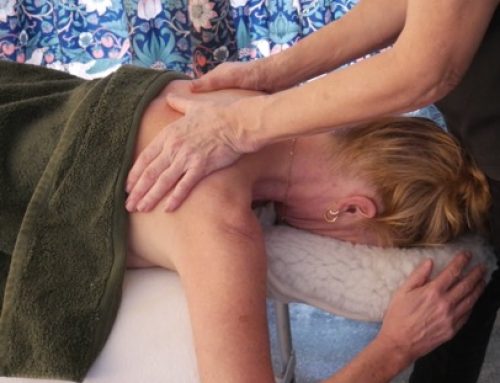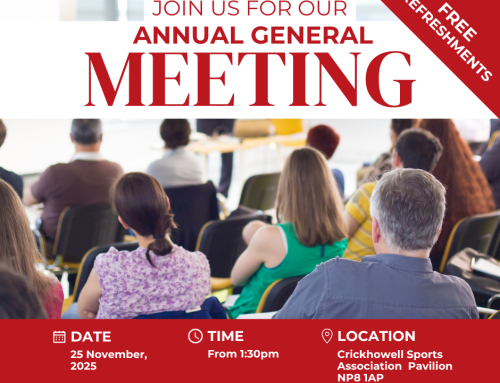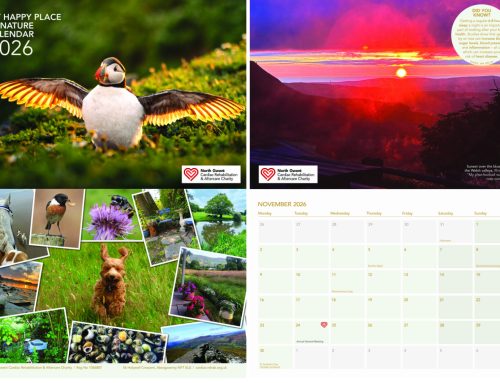A Case for Change: Future developments in the North Gwent Cardiac Rehabilitation and Aftercare Charity.
The key themes that shall be explored in the document:
- A description of the present model of service.
- An explanation of the need for change.
- A description of the new service model that will be introduced in 2021.
- How the Board of trustees will continue to support the membership of the charity.
Introduction
The charity was formed to facilitate the provision of fitness classes in the community, run by British Association for Cardiovascular Prevention and Rehabilitation (BACPR) qualified instructors so that people who suffered a cardiac event could continue with long term (Phase IV) of their rehabilitation.
The charity currently manages the hire of halls and gyms, the procurement and maintenance of equipment and contributes 50% of the instructor’s wages, the remainder being paid by the Aneurin Bevan Health Board (currently the instructor’s formal employer). Funds to finance these activities comes from membership, class fees, donations, grants and events organised by the fund-raising committee volunteers.
However, the annual challenge to match income and expenditure has been made impossible by COVID-19 restrictions.
Due to a significant downward trend in income, and in order to save the charity, the trustees took the decision to end the 50% instructor wage contribution to the Health Board. As a result, the instructor’s contract with the Health Board to work with Phase 4 ends this June and a consultation process to see if alternative employment can be found within the HB for the same number of designated hours is underway.
The trustees have therefore reviewed and updated the existing service model to make it financially viable and we believe of higher value to its members.
Overview of Phase 4 (long term cardiac rehabilitation [CR]) and the impact of Co-vid 19.
Community Classes
North Gwent Long Term Cardiac Rehabilitation has been in existence since 1991 when a number of patients, on completing Phase 3 (where patients attend a hospital-based Cardiac Rehabilitation Programme twice a week for 6 – 8 weeks) felt it was important to maintain and improve on their newly acquired lifestyle changes. With the support of the Nevill Hall Cardiac Rehabilitation (CR) team community classes were set up across North Gwent. The number of classes gradually increased, over several of years, in response to demand. The service was paid for solely by the fundraising efforts of the newly convened North Gwent Cardiac Rehabilitation and After Care charity. In 1998 a bid to the Health Board (HB) to cover 50% of Fitness Instructor costs was successful and this funding has been in existence ever since.
The classes run by three BACPR Fitness Instructors originally consisted of exercise, education and relaxation and lasted 75mins. The impact of increasing costs to the charity along with reduced income (specifically over the last three years) has resulted in the number of classes being reduced from 24 to 17 and restricted to an hour.
Class venues are variable across North Gwent these consist of community halls, church halls and leisure centers. The type and quantity of exercise equipment for each class is dependent on storage facilities. A log of equipment is kept by the Assistant Fitness Instructor and is checked, and safety certified on an annual basis.
Classes are held at various times during the day (excluding evenings) Monday to Saturday. The number of participants attending each class varies between 5 to 20 and where class numbers exceed 15 an Assistant Instructor is also present. A register of attendance is kept for each class.
Liability Insurance for the classes is covered by the British Heart Foundation and renewed by the Charity’s secretary on an annual basis.
Fitness Instructors
The classes are run by three BACPR Fitness Instructors. They are responsible for revalidating their professional certification every three years are employed by the HB and as such are covered by the HB’s liability insurance. Managed by a designated member of the HB CR team they comply with HB regulations such as mandatory training, annual leave and sick leave etc. Each Instructor covers a designated number of classes and works set hours.
Participants
Class attendance is dependent on the number of new referrals from Phase 3. On completion of Phase 3 participants are encouraged (in accordance with BACPR guidelines) to maintain long term exercise and may be referred to Phase 4 by the CR team. There are, however, other options for participants to consider such as joining the National Exercise Referral Scheme (lasts 8 weeks), a walking group or taking independent exercise.
Instructors contact potential participants, within a week of receiving referral information (a Phase 3 completion document as advised by the BACPR) from the CR Phase 3 team. A completion letter is sent to the participants GP. The participant’s carer (partner/family member) may also accompany them to Phase 4 when in receipt of a covering letter from their GP.
Participants pay £4.50 for each class if, however, they are Member of the charity this is reduced to £4. Membership costs £10 per year and is run by Kath Cleveland.
Communication to participants is via the Ticker News (generally 2-3 times per year), newsletters (ad hoc) and the website.
The impact of COVID 19
Since March 2020 the number of patients presenting to hospital with an acute cardiac event has reduced by 37%. This accompanied by CR services being withdrawn or only offering minimal support means there are patients who have been left unsupported. A reduction in referrals to Phase 4 at this time is therefore inevitable.
In the meantime, COVID-19 restrictions have resulted in Phase 3 services initiating on- line/virtual services to support patients in the community. These digitally supported options will be an important part of CR in the future. It is anticipated that the likelihood of an increase of 30% in unplanned admissions, when restrictions are eased is high.
Over the last few months, the Instructors have been in regular contact with their class members and when restrictions allow take walking groups in various locations across North Gwent. Attendance is of course dependent on member’s individual isolation risk and walking ability.
Stating the case for change
The charity believes there are a number of motivating factors underpinning the need to change the current service model. They include the following: –
One of the arguments for considering changes to the service model is the inability of the charity to raise sufficient funds to pay its costs annually and for this reason the charity has seen the money in its current account diminish greatly. This deteriorating financial picture had been discussed in a number of trustee meetings long before the COVID-19 outbreak but the closure of the classes resulting from COVID-19 greatly intensified the seriousness of the position and the charity found itself facing the very real and serious situation in December 2020 of there being no money left in the current account.
Fortunately, a one-off donation from the Health Board temporarily improved the position and as a result the charity has been able to continue paying its costs for the time being. It is not envisaged that the increasing difficulties the charity experiences in generating sufficient funds will improve anytime soon so the disparity between funding required and the funding generated is only likely to worsen. In essence the trustees are of the opinion that the charity can no longer afford the costs of the current service model.
There are arguably more compelling reasons to introduce changes to the service model. The trustees have for some time now recognised and discussed a number of concerning clinical and practical limitations they believe are associated with the service model. Currently there is no provision of what is referred to in this document as out of hours classes. All classes currently operate between the hours of 9-5 and yet there is a clearly defined need for classes to operate outside of these hours for individuals who would still benefit from ongoing cardiac rehabilitation following their cardiac event but who have found themselves having to return to work. Such individuals find themselves unable to commit to attending classes during traditional office hours and the charity recognise the importance of being able to offer these individuals a fair and equitable service.
There is also growing concerns on the number of individuals who fail to graduate from phase three to phase four. A high number of clients slip though the net at the transition point and the current service model does little to address this and yet the viability of operating a community-based rehabilitation service greatly depends on individuals moving seamlessly from a largely hospital-based phase 3 service to a local community-based phase 4 service.
The trustees also believe that the current service model has failed to embrace the advantages of including web based/IT based approaches and that a future modernised service model would need to address this for those class members seeking that type of support. Finally, there are a number of classes in the current service model that have very low numbers of attendees and this has raised serious questions as to the viability of continuing with these classes. The trustees believe that reviewing these classes as part of this modernisation agenda is of paramount importance.
Proposed new service model
The new aim of the charity would be to support and manage 10 exercise classes over the North Gwent area. The areas being Abergavenny, Monmouth, Usk, Tredegar, Ebbw Vale, Abertillary, Blaenavon and Nantyglo. Unfortunately, some of the existing classes will have to close, this decision was based on the recent membership poll undertaken by the charity. The charity will in due course write to those affected members explaining the reasoning behind the closures. The charity is committed to providing at least one exercise class in each geographical area and we will facilitate the introduction of further classes if the demand arises.
The classes would run during the day between the hours of 9 am to 5 pm. The charity would also provide support for the introduction of two twilight classes, one in the south and one in the north. There are also plans to introduce a digital service that will allow members access to resources and live streaming events through the charity web page. The charity is prepared to financially support the introduction of this service model.
The structure and nature of the exercise classes would also change. This would include once a month education session and reassessment opportunities for the membership. We would also strive to develop with the help of the instructor’s wellbeing checks for the class attendees.
Our intention is to support and develop the class instructor role. Their financial renumeration for involvement with the charity would be negotiated based on their experience and qualifications. This would be based on Nationally agreed BACPR guidelines. To support the development of our new service model the existing class instructor job descriptions would be reviewed and developed as part of this process. On top of class costs, the charity anticipate in the new class model 2 hours of phase 3 to 4 interventions each week and attendance to 4 quarterly quality meetings per year. The instructor would be paid an additional hourly rate for both.
Based on the advantages already discussed, the new stream-lined model ensures the future viability of rehabilitation and aftercare services in the North Gwent Region. The Charity also recognises the needs for flexibility in the model and have made provision for further classes should conditions dictate. The cost of managing the existing service is approximately £77.000, the new post COVID model would significantly reduce our costs and would align with our financial modelling.
Risks to the Service
The Charity and its trustees have identified potential risks in the new model. The main risks being,
- • Continuity of the service in the new model,
- • communication between stakeholders,
- • risk management,
- • monitoring and evaluation of the service model,
- • attracting sufficient new membership,
- • fundraising,
- • the interface between phase 3 to 4 and
- • data protection and confidentiality.
To implement the new service model, the charity is developing an action plan to address the risks and support its transition.
Conclusion
The original mission of the North Gwent Cardiac Rehabilitation and Aftercare Charity was to provide a service to the Phase 4 Cardiac Community. Like many charities, factors out of our control have conspired to make the present service difficult to maintain. It is hoped that the new service model underlines the commitment for the Charity towards its mission and provide a framework for the development and expansion of our services in the future.
North Gwent Cardiac Rehabilitation and Aftercare Charity Feb. 2020 Version 3










